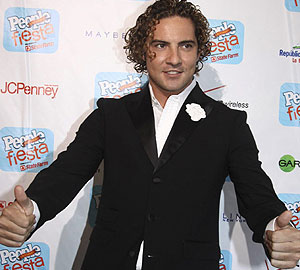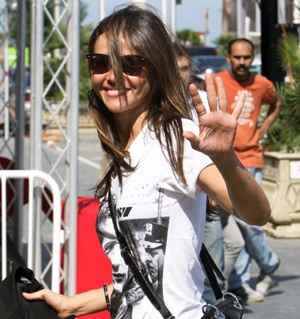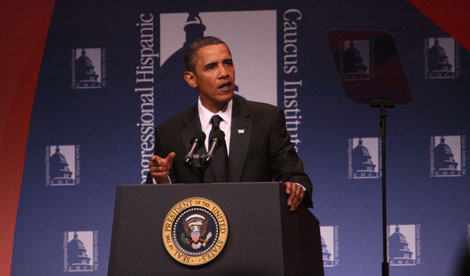Mary Travers, whose ringing, earnest vocals with the folk trio Peter, Paul and Mary made songs like "Blowin' in the Wind," "If I Had a Hammer" and "Where Have All the Flowers Gone?" enduring anthems of the 1960s protest movement, died on Wednesday at Danbury Hospital in Connecticut. She was 72 and lived in Redding, Conn.
The cause was complications from chemotherapy associated with a bone-marrow transplant she had several years ago after developing leukemia, said Heather Lylis, a spokeswoman.



Ms. Travers brought a powerful voice and an unfeigned urgency to music that resonated with mainstream listeners. With her straight blond hair and willowy figure and two bearded guitar players by her side, she looked exactly like what she was, a Greenwich Villager directly from the clubs and the coffeehouses that nourished the folk-music revival.
"She was obviously the sex appeal of that group, and that group was the sex appeal of the movement," said Elijah Wald, a folk-blues musician and a historian of popular music.
Ms. Travers's voice blended seamlessly with those of her colleagues, Peter Yarrow and Paul Stookey, to create a rich three-part harmony that propelled the group to the top of the pop charts. Their first album, "Peter, Paul and Mary," which featured the hit singles "Lemon Tree" and "If I Had a Hammer," reached No. 1 shortly after its release in March 1962 and stayed there for seven weeks, eventually selling more than two million copies.
The group's interpretations of Bob Dylan's "Blowin' in the Wind" and "Don't Think Twice, It's All Right" translated his raw vocal style into a smooth, more commercially acceptable sound. The singers also scored big hits with pleasing songs like the whimsical "Puff the Magic Dragon" and John Denver's plaintive "Leaving on a Jet Plane."
Their sound may have been commercial and safe, but early on their politics were somewhat risky for a group courting a mass audience. Like Mr. Yarrow and Mr. Stookey, Ms. Travers was outspoken in her support for the civil-rights and antiwar movements, in sharp contrast to clean-cut folk groups like the Kingston Trio, which avoided making political statements.
Peter, Paul and Mary went on to perform at the 1963 March on Washington and joined the voting-rights marches from Selma to Montgomery, Ala., in 1965.
Over the years they performed frequently at political rallies and demonstrations in the United States and abroad. After the group disbanded, in 1970, Ms. Travers continued to perform at political events around the world as she pursued a solo career.
"They made folk music not just palatable but accessible to a mass audience," David Hajdu, the author of "Positively Fourth Street," a book about Mr. Dylan, Joan Baez and their circle, said in an interview. Ms. Travers, he added, was crucial to the group's image, which had a lot to do with its appeal. "She had a kind of sexual confidence combined with intelligence, edginess and social consciousness — a potent combination," he said. "If you look at clips of their performances, the camera fixates on her. The act was all about Mary."
Mr. Yarrow, in a statement on Wednesday, described Ms. Travers's singing style as an expression of her character: "honest and completely authentic."
Mr. Stookey, in an accompanying statement, wrote that "her charisma was a barely contained nervous energy — occasionally (and then only privately) revealed as stage fright."
Mary Allin Travers was born on Nov. 9, 1936, in Louisville, Ky. When she was 2 her parents, both writers, moved to New York. Almost unique among the folk musicians who emerged from the Greenwich Village scene in the early 1960s, Ms. Travers actually came from the neighborhood. She attended progressive private schools there, studied singing with the music teacher Charity Bailey while still in kindergarten and became part of the folk-music revival as it took shape around her.
"I was raised on Josh White, the Weavers and Pete Seeger," Ms. Travers told The New York Times in 1994. "The music was everywhere. You'd go to a party at somebody's apartment and there would be 50 people there, singing well into the night."
While at Elisabeth Irwin High School, she joined the Song Swappers, which sang backup for Mr. Seeger when the Folkways label reissued a collection of union songs under the title "Talking Union" in 1955. The Song Swappers made three more albums for Folkways that year, all featuring Mr. Seeger to some degree.
Ms. Travers had no plans to sing professionally. Folk singing, she later said, had been a hobby. At New York clubs friends like Fred Hellerman of the Weavers and Theodore Bikel would coax her onstage to sing, but her extreme shyness made performing difficult. In 1958 she appeared in the chorus and sang one solo number in Mort Sahl's short-lived Broadway show "The Next President," but as the '60s dawned she found herself at loose ends.
By chance, Albert Grossman, who managed a struggling folk singer named Peter Yarrow and would later take on Mr. Dylan as a client, was intent on creating an updated version of the Weavers for the baby-boom generation. He envisioned two men and a woman with the crossover appeal of the Kingston Trio. Mr. Yarrow, talking to Grossman in the Folklore Center in Greenwich Village, noticed Ms. Travers's photograph on the wall and asked who she was. "That's Mary Travers," Grossman said. "She'd be good if you could get her to work."
Mr. Yarrow went to Ms. Travers's apartment on Macdougal Street, across from the Gaslight, one of the principal folk clubs. They harmonized on "Miner's Lifeguard," a union song, and decided that their voices blended. To fill out the trio, Ms. Travers suggested Noel Stookey, a friend doing folk music and stand-up comedy at the Gaslight.
After rehearsing for seven months, with the producer and arranger Milt Okun coaching them, Peter, Paul and Mary — Mr. Stookey adopted his middle name, Paul, because it sounded better — began performing in 1961 at Folk City and the Bitter End. The next year they released their first album.
Virtually overnight Peter, Paul and Mary became one of the most popular folk-music groups in the world. The albums "Moving" and "In the Wind," both released in 1963, rose to the top of the charts and stayed there for months. In concert the group's direct, emotional style of performance lifted audiences to their feet to deliver rapturous ovations.
Ms. Travers, onstage, drew all eyes as she shook her hair, bobbed her head in time to the music and clenched a fist when the lyrics took a dramatic turn. On instructions from Grossman, who wanted her to retain an air of mystery, she never spoke. The live double album "In Concert" (1964) captures the fervor of their performances.
On television the group's mildly bohemian look — Ms. Travers favored beatnik clothing and Mr. Yarrow and Mr. Stookey had mustaches and goatees — gave mainstream audiences their first glimpse of a subculture that had previously been ridiculed on shows like "The Many Loves of Dobie Gillis."
"You cannot overemphasize those beards," Mr. Wald said. "They looked like Greenwich Village to the rest of America. They were the first to go mainstream with an artistic, intellectual, beat image."
Although the arrival of the Beatles and other British invasion bands spelled the end of the folk revival, Peter, Paul and Mary remained popular throughout the 1960s. The albums "A Song Will Rise" (1965), "See What Tomorrow Brings" (1965) and "Album 1700" (1967) sold well, as did the singles "For Lovin' Me" and "Early Morning Rain," both by Gordon Lightfoot, and Mr. Dylan's "When the Ship Comes In." The gently satirical single "I Dig Rock and Roll Music" (1967) reached the Top 10, and "Leaving on a Jet Plane" (1969), their last hit, reached No. 1 on the charts.
In 1970, after releasing the greatest-hits album "Ten Years Together," the group disbanded. Ms. Travers embarked on a solo career, with limited success, releasing five albums in the 1970s. The first, "Mary" (1971), was the most successful, followed by "Morning Glory" (1972), "All My Choices" (1973), "Circles" (1974) and "It's in Everyone of Us" (1978).
Ms. Travers's first three marriages ended in divorce. She is survived by her fourth husband, Ethan Robbins; two daughters, Erika Marshall of Naples, Fla., and Alicia Travers of Greenwich, Conn.; a sister, Ann Gordon of Oakland, Calif.; and two grandchildren.
Peter, Paul and Mary reunited to perform at a benefit to oppose nuclear power in 1978 and thereafter kept to a limited schedule of tours around the world. Many of their concerts benefited political causes. "I was raised to believe that everybody has a responsibility to their community and I use the word very loosely," Ms. Travers told The Times in 1999. "It's a big community. If I get recognized in the middle of the Sinai Desert I have a big community."
It was a faithful community. Musical fashions changed, but fans stayed loyal to the music and the political ideals of the group. Ms. Travers once told the music magazine Goldmine, "People say to us, 'Oh, I grew up with your music,' and we often say, sotto voce, 'So did we.' "
http://www.nytimes.com/2009/09/17/arts/music/17travers.html?em

























